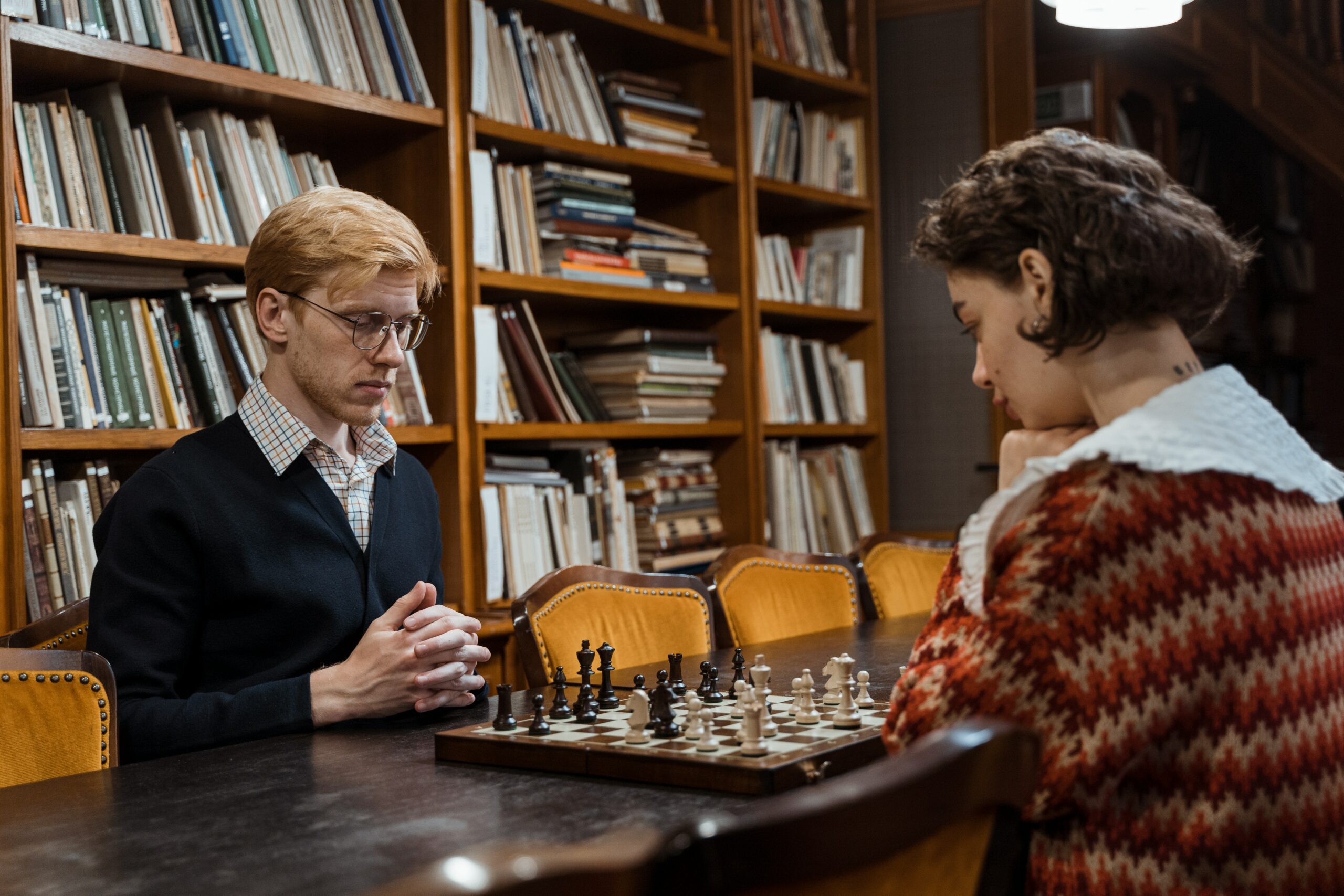Chess is a game that has captured the hearts and minds of millions of people around the world. Whether you’re a novice or a seasoned player, understanding what makes a good chess player is essential for improving your skills and enjoying the game to its fullest.
In this article, we will delve into the fundamental qualities and strategies that set exceptional chess players apart. From critical thinking and problem-solving abilities to patience, pattern recognition, and tactical awareness, we will explore the key attributes that contribute to chess mastery.
How Does Critical Thinking Contribute to Chess Mastery?
Critical thinking plays a pivotal role in achieving chess mastery. Exceptional chess players employ critical thinking skills to analyze complex positions, evaluate various options, and make informed decisions.
Thinking several moves ahead and anticipating their opponent’s responses can devise strategic plans and identify the most advantageous moves. Critical thinking enables players to consider the strengths and weaknesses of each move, weigh the potential risks and rewards, and select the optimal course of action.
Can Chess Improve Problem-Solving Abilities?
Chess is not just a game of strategy; it is also a powerful tool for improving problem-solving abilities. Engaging in regular chess practice exercises the brain’s problem-solving muscles, enhancing our ability to analyze complex situations, evaluate alternatives, and find optimal solutions.
The game presents players with challenging positions that require them to think critically, consider multiple factors, and make decisions under pressure. Actively engaging in chess develops pattern recognition skills, learning to think several moves ahead, and anticipate our opponent’s strategies.
These problem-solving skills extend beyond the chessboard, benefiting us in various real-life scenarios where analytical thinking and creative solutions are required.
Are Patience and Long-Term Planning Key to Becoming a Great Chess Player?

Patience and long-term planning are essential qualities for any aspiring chess player. Chess is a game of foresight and strategy, and it often requires players to make sacrifices in the short term for long-term gains.
Exceptional players exhibit patience by carefully considering each move, avoiding impulsive decisions, and maintaining a long-term perspective. Developing patience and a knack for long-term planning can navigate the complexities of the game and outmaneuver your opponents.
What Are the Fundamental Skills Required to Excel at Chess?
To excel at chess, it is essential to develop a strong foundation of fundamental skills. These skills provide the building blocks for understanding and navigating the complexities of the game.
Here are the fundamental skills required to excel at chess:
-
Knowledge of the rules and principles of chess, including piece movement, capturing, and castling.
-
Familiarity with the different phases of the game: the opening, middlegame, and endgame.
-
Understanding of basic tactics and strategic ideas, such as forks, pins, and pawn structures.
-
Ability to calculate and analyze variations, foreseeing the consequences of moves.
-
Proficiency in pattern recognition, and identifying recurring motifs and themes.
-
Strategic planning and long-term thinking, considering the overall flow and objectives of the game.
-
Adaptability and flexibility, adjusting strategies based on changing circumstances.
-
Emotional intelligence, maintaining composure, and making sound decisions under pressure.
-
Continuous learning and improvement, studying openings, endgames, and renowned chess games.
What Role Does Pattern Recognition Play in Chess Strategy?
Pattern recognition plays a crucial role in chess strategy, guiding players in their decision-making process and allowing them to anticipate and respond effectively to different positions. Exceptional chess players have trained their minds to recognize recurring patterns and themes, such as specific pawn structures, tactical motifs, and strategic ideas.
Pattern recognition not only aids in evaluating the strengths and weaknesses of a position but also helps in formulating effective plans and strategies. It allows players to spot potential threats, calculate variations more efficiently, and find optimal moves based on familiar patterns.
Through extensive practice and exposure to various chess positions, players can enhance their pattern recognition skills, enabling them to navigate the complexities of the game with greater precision and confidence.
Is Memorization Essential for Chess Success?
While memorization is not the sole determinant of chess success, it certainly plays a significant role. Chess involves an extensive body of opening theory, endgame knowledge, and tactical patterns.
Exceptional players invest time in studying and memorizing various openings, which allows them to navigate the early stages of the game with confidence and familiarity. Additionally, memorizing important tactical motifs and endgame principles equips players with powerful tools for finding winning combinations and securing victories.
How Does Tactical Awareness Impact Gameplay?
Tactical awareness, the ability to spot and exploit tactical opportunities, is a hallmark of exceptional chess players. Tactical combinations, such as forks, pins, and skewers, can quickly turn the tide of a game.
Cultivating tactical awareness can seize advantageous positions, create threats, and launch devastating attacks. Regular practice of tactical puzzles and tactical training exercises can significantly enhance your tactical vision and improve your overall gameplay.
Can Emotional Intelligence Affect Chess Performance?
Emotional intelligence, the ability to recognize and manage one’s emotions, plays a significant role in chess performance. The intense and competitive nature of the game can evoke strong emotions, such as frustration, anxiety, and overconfidence.
Exceptional players maintain emotional balance and composure, enabling them to think clearly and make sound decisions under pressure. Developing emotional intelligence through self-awareness and self-regulation can positively impact your performance on the chessboard.
Does Analytical Thinking Enhance Decision-Making in Chess?
Analytical thinking is a critical skill in chess, as it allows players to break down complex positions into manageable components and evaluate different options. Analyzing the strengths and weaknesses of each move can make well-informed decisions.
Exceptional players employ analytical thinking to consider multiple candidate moves, weigh their pros and cons, and choose the most promising course of action. Regularly practicing analytical thinking can sharpen your decision-making abilities and elevate your gameplay.
What Are the Benefits of Studying Chess Openings?

Studying chess openings offers numerous benefits for players of all skill levels. Familiarity with different opening systems provides a solid foundation for the middlegame, offering control of the center, development opportunities, and potential pawn structures.
Studying openings can gain insights into typical plans, strategies, and tactical themes associated with specific variations. Moreover, understanding opening theory allows players to avoid common pitfalls and surprises, giving them a competitive advantage.
| Chess Opening | Benefits | Example Move Sequence |
|---|---|---|
| Italian Game | Provides early control of the center and development opportunities. | 1.e4 e5 2.Nf3 Nc6 3.Bc4 |
| Ruy Lopez | Offers complex pawn structures and strategic possibilities. | 1.e4 e5 2.Nf3 Nc6 3.Bb5 |
| Sicilian Defense | Allows counterattacking opportunities and dynamic play. | 1.e4 c5 |
| French Defense | Focuses on pawn structure and positional maneuvering. | 1.e4 e6 |
| Caro-Kann Defense | Provides a solid and sound pawn structure with limited weaknesses. | 1.e4 c6 |
How Does Endgame Knowledge Separate Good Players from Experts?
The endgame is the phase of the game where fewer pieces remain on the board, and precise calculations and strategic understanding become paramount. Exceptional players invest time in studying endgame principles and mastering essential endgame positions.
Endgame knowledge allows players to exploit slight advantages, convert favorable positions into victories, or hold tough defensive positions. By deepening your understanding of endgame concepts, you can significantly enhance your chances of success in the later stages of the game.
Are Adaptability and Flexibility Crucial in Chess?
Adaptability and flexibility are essential qualities for navigating the complexities of chess. The game unfolds dynamically, and players must adjust their strategies and plans based on the changing circumstances.
Exceptional players display adaptability by assessing the evolving position, recognizing new patterns, and adapting their approach accordingly. Flexibility allows players to switch between different strategic ideas, explore alternative paths, and capitalize on unexpected opportunities.
Can Visualization Skills Give You an Edge in Chess?
Visualization skills, the ability to mentally visualize and manipulate positions, are highly advantageous in chess. Exceptional players can visualize the consequences of their moves and mentally explore different variations without physically moving the pieces.
Visualization skills enable players to calculate complex sequences, anticipate potential threats, and formulate winning strategies. Regular practice of visualization exercises can enhance your ability to mentally navigate the chessboard and make accurate assessments.
What Can Chess Teach About Resilience and Bouncing Back from Defeat?
Chess is a captivating game that offers valuable life lessons, particularly in the realm of resilience and bouncing back from defeat. In the world of chess, losses are an inevitable part of the journey, even for the most skilled players.
However, it is through these setbacks that players can truly develop their resilience. When faced with defeat, exceptional chess players do not dwell on their losses but instead, view them as opportunities for growth and learning. They analyze their mistakes with a critical eye, identifying areas for improvement and devising new strategies to avoid similar pitfalls in the future.
This ability to bounce back from defeat with a positive and determined mindset is what sets apart great chess players from average ones. As players continue to face challenges on the chessboard, they build resilience that extends beyond the game and becomes a valuable asset in navigating the ups and downs of life with grace and fortitude.
Chess teaches us that resilience is not about avoiding defeat but rather about using setbacks as stepping stones to success and ultimately achieving mastery through unwavering determination and perseverance.
How Does a Growth Mindset Contribute to Chess Improvement?

A growth mindset is a mindset that believes intelligence and abilities can be developed through dedication and effort. In the context of chess, adopting a growth mindset can have a significant impact on one’s improvement and success as a player.
When approaching the game with a growth mindset, players embrace challenges and view them as opportunities for growth. They understand that setbacks and mistakes are part of the learning process and are not discouraged by them.
Instead, they analyze their errors, identify areas for improvement, and actively work to enhance their skills. With a growth mindset, players are more likely to seek out new strategies, study different chess concepts, and engage in continuous learning. They have the motivation and perseverance to put in the necessary time and effort required to become better players.
Overall
Becoming a good chess player requires a combination of fundamental skills, critical thinking, problem-solving abilities, patience, pattern recognition, and tactical awareness. Additionally, emotional intelligence, analytical thinking, adaptability, and visualization skills play vital roles in achieving mastery.
Studying chess openings, understanding endgame principles, and developing a growth mindset are all essential for continuous improvement. By honing these qualities and strategies, you can enhance your chess gameplay, challenge yourself, and enjoy the fascinating world of chess to its fullest.




